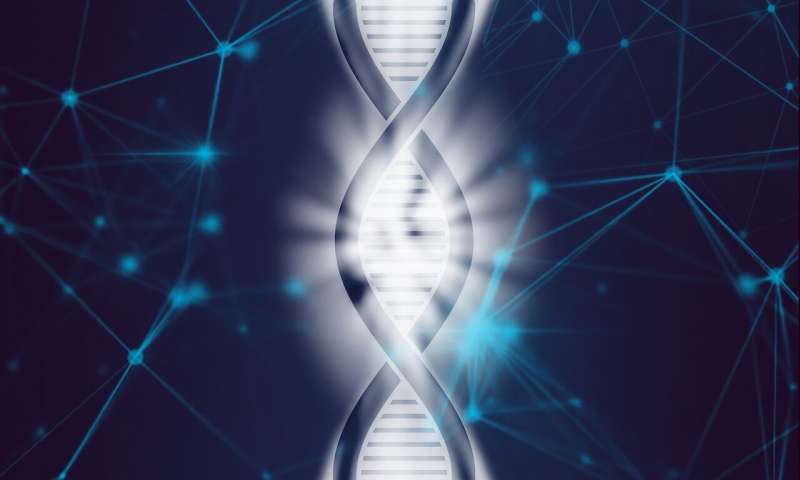New genes out of nothing

One key question in evolutionary biology is how novel genes arise and develop. Swedish researchers now show how new genes and functions that are advantageous to bacteria can be selected from random DNA sequences. The results are presented in the scientific journal mBio.
How do new genes and functional proteins arise and develop? This is one of the most fundamental issues in evolutionary biology. Two different types of mechanism have been proposed: (1) new genes with novel functions arise from existing genes, and (2) new genes and proteins evolve from random DNA sequences with no similarity to existing genes and proteins. In the present study, the researchers explored the latter type of mechanism: evolution of new genes and proteins from randomised DNA sequences—de novo evolution, as it is called. It is fairly easy to understand that when a gene already exists, it can be modified and acquire a new function. But how does "nothing" turn into a function affording a small advantage that is favoured by natural selection?
The raw material for the experiment was an big library of some 500 million randomised gene sequences, from which peptide sequences with a biological function were identified. In the experiment, random gene sequences were placed on a plasmid and overexpressed. The scientists then investigated whether they could give bacteria a specific, defined property. Were they, for example, able to give the bacteria antibiotic resistance? They identified several short peptides (22–25 amino acids long) that could give the bacteria a high degree of resistance to aminoglycosides, an important class of antibiotics used for severe infections.
"When the project started, we had low expectations. We were amazed when we found peptides able to confer a resistance level 48 times higher," says Dr. Michael Knopp, the study's lead author.
Through a combination of genetic and functional experiments, the scientists were able to demonstrate that the peptides cause resistance by attaching themselves to bacterial cell membranes and affecting the proton potential across the membrane. The disruption of the proton potential causes a decrease in antibiotic uptake, rendering the bacteria resistant.
"This study is important because it shows that completely random sequences of amino acids can give rise to new, advantageous functions, and that this process of de novo evolution can be studied experimentally in the laboratory," says Dan I. Andersson, Professor of Medical Bacteriology, who is chiefly responsible for the study.
More information: Michael Knopp et al. De Novo Emergence of Peptides That Confer Antibiotic Resistance, mBio (2019). DOI: 10.1128/mBio.00837-19
Journal information: mBio
Provided by Uppsala University




















